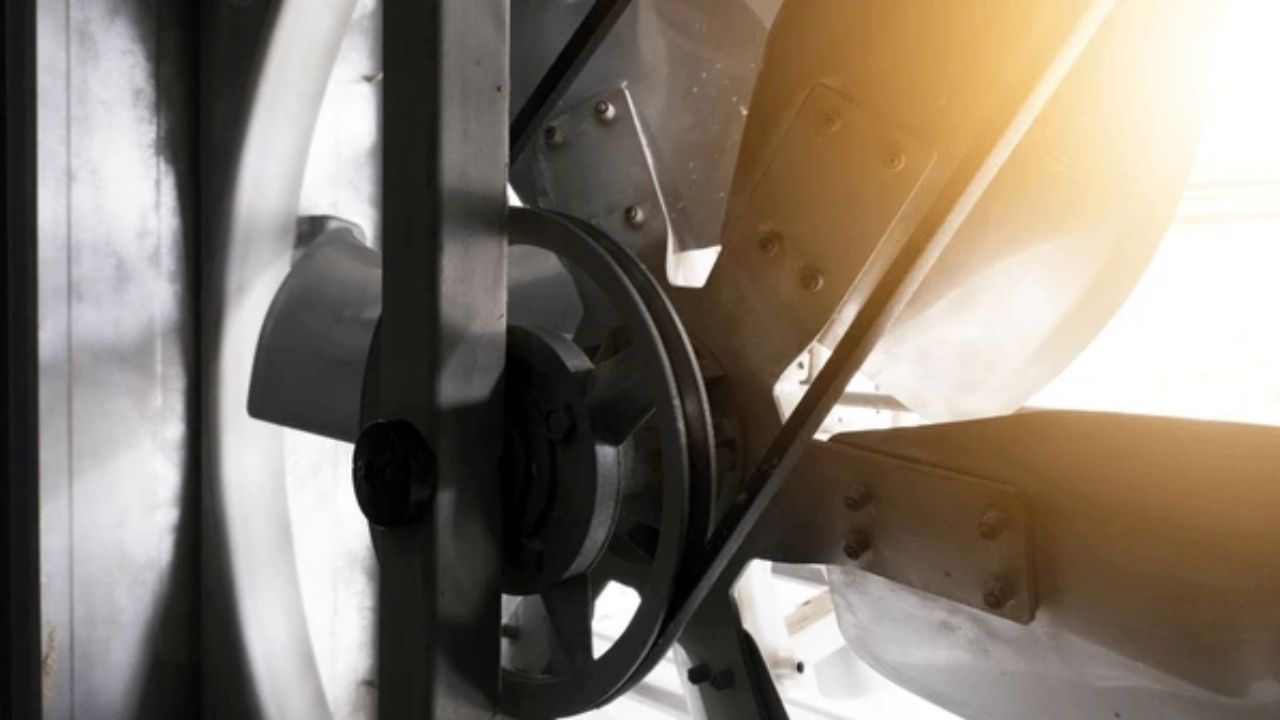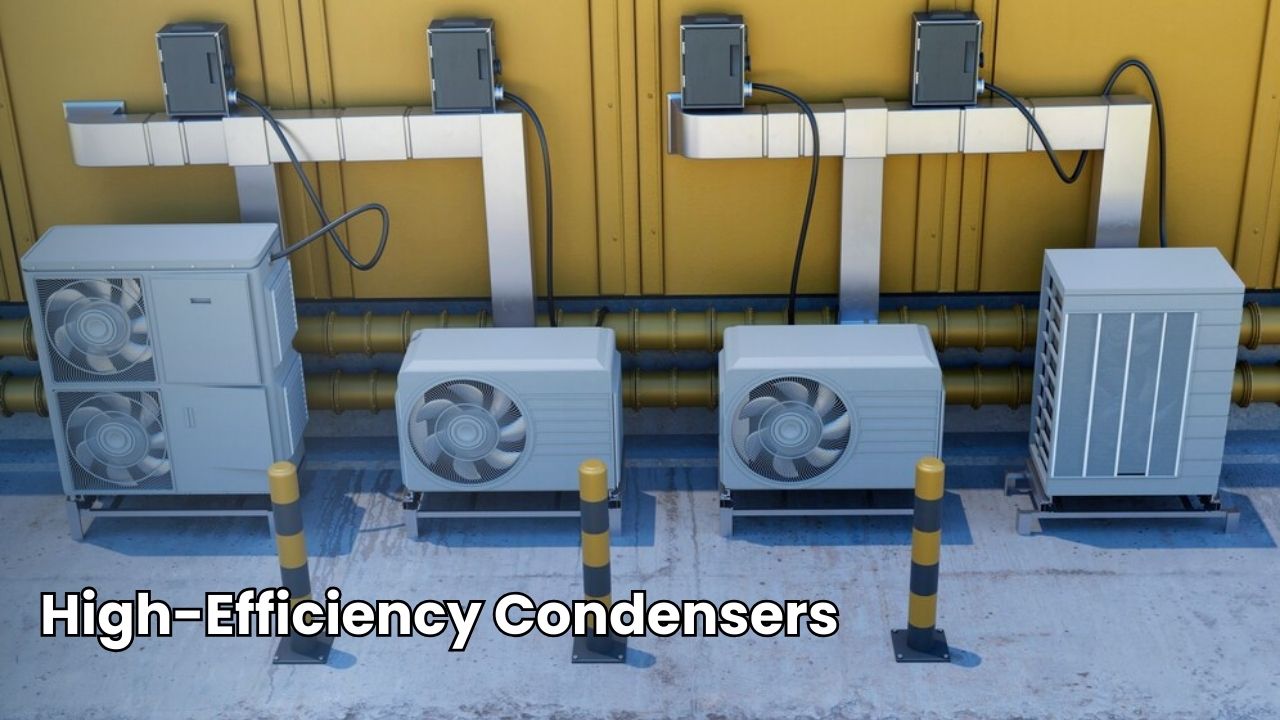
Axial Fan Types Performance and Application Areas


High-efficiency condensers play a crucial role in various sectors such as heating, cooling, and HVAC (Heating, Ventilation, and Air Conditioning) systems. These condensers maximize energy efficiency during heat transfer processes, thereby reducing operational costs. High-efficiency condensers are ideal for meeting modern industrial demands due to their environmentally friendly designs and long lifespans.
High-efficiency condensers come in various types, each designed to suit specific applications and technical requirements. The most common types include Plate Condensers, Spiral Condensers, and Air-Cooled Condensers. Plate condensers offer compact designs, making them suitable for limited space environments while maintaining high performance. Spiral condensers provide extensive surface areas for optimal heat transfer and are preferred in large-scale systems. Air-cooled condensers are favored for their environmentally friendly operation and minimal maintenance requirements, making them widely used across various industrial applications.
The effectiveness and longevity of high-efficiency condensers heavily depend on the quality of materials used and the precision of manufacturing processes. Materials such as stainless steel, aluminum, and copper enhance the durability and corrosion resistance of condensers. Advanced manufacturing techniques, including precision machining and automated assembly, contribute to the production of high-performance condensers. Additionally, stringent quality control measures and performance testing ensure that each condenser meets the highest industry standards.

In today's environmentally conscious market, energy efficiency and sustainability are critical factors in the design and implementation of high-efficiency condensers. Modern condensers are engineered to minimize energy consumption through the integration of heat recovery systems and high-efficiency heat exchangers. Sustainable manufacturing practices, including the use of recyclable materials and the implementation of waste reduction strategies, aim to reduce the environmental impact of production processes. This focus on energy efficiency and sustainability not only lowers operational costs but also fulfills environmental responsibilities.
Continuous innovation and investment in research and development are essential for advancing high-efficiency condenser technology. Innovations such as smart control systems and IoT (Internet of Things) integration enhance the functionality and efficiency of condensers. Additionally, advancements in fan aerodynamics and automatic cleaning systems improve performance and user comfort. R&D efforts also focus on developing new materials and manufacturing techniques to create more efficient, durable, and environmentally friendly condensers.
Each industry and application has unique requirements, making customized high-efficiency condenser solutions essential. Manufacturers work closely with clients to design and engineer condensers that meet specific thermal, spatial, and operational needs. This collaborative approach involves detailed consultations, precise design modifications, and tailored manufacturing processes. Ensuring customer satisfaction through personalized solutions fosters long-term partnerships, drives repeat business, and generates positive referrals.
In the competitive global market, effective marketing strategies are crucial for high-efficiency condenser manufacturers. Building a strong brand presence through digital marketing, participation in industry trade shows, and obtaining international certifications can significantly enhance market visibility. Additionally, understanding and adapting to regional market trends and regulatory requirements enable manufacturers to cater to diverse customer bases and maintain a competitive edge on a global scale.
Providing comprehensive maintenance and service support is integral to the success of high-efficiency condenser solutions. Regular maintenance ensures that condensers operate efficiently and extend their service life. Service support includes scheduled inspections, troubleshooting, and replacement of worn-out parts. Offering prompt and reliable service enhances customer trust and satisfaction, positioning the manufacturer as a dependable partner in the industry.
Adhering to international industrial standards and obtaining relevant certifications are critical for ensuring the quality and reliability of high-efficiency condenser solutions. Certifications such as ISO 9001, CE, and UL validate that the condensers meet specific quality, safety, and performance criteria. Compliance with these standards not only reassures customers of product reliability but also facilitates access to global markets and fosters trust in the brand.
Efficient logistics and supply chain management are essential for the timely delivery and installation of high-efficiency condenser solutions. Effective coordination with suppliers, optimized inventory management, and streamlined distribution processes minimize delays and reduce operational costs. Additionally, leveraging advanced logistics technologies, such as inventory management software and real-time tracking systems, enhances the overall efficiency and reliability of the supply chain.
The expertise and skills of the workforce are fundamental to the innovation and quality of high-efficiency condenser solutions. Investing in the continuous training and development of engineers, technicians, and production staff ensures that the team stays updated with the latest technological advancements and industry best practices. A knowledgeable and skilled workforce drives the creation of innovative solutions and maintains high standards of quality and efficiency.
Robust financial management is crucial for the sustainable growth and expansion of high-efficiency condenser manufacturers. Effective financial planning involves allocating resources for research and development, production capacity expansion, and marketing initiatives. Strategic investments in technology and infrastructure enhance operational capabilities and drive long-term success. Additionally, prudent risk management practices safeguard the company against economic fluctuations and market uncertainties.
Compliance with various regulations and legal requirements is essential for operating within the global market. Adhering to environmental regulations, safety standards, and industry-specific laws ensures that high-efficiency condenser solutions are not only effective but also environmentally responsible and safe to use. Staying informed about changing regulations and proactively adjusting operations accordingly helps maintain compliance and avoids legal complications.
Integrating advanced technologies into high-efficiency condenser solutions significantly enhances their functionality and performance. Smart sensors and automation systems enable real-time monitoring and control, optimizing heat transfer processes and improving energy efficiency. Additionally, leveraging data analytics and machine learning facilitates predictive maintenance and operational optimization, ensuring that high-efficiency condensers operate at their highest potential.
Forming strategic partnerships with global suppliers allows high-efficiency condenser manufacturers to access high-quality materials and cutting-edge technologies. Collaboration with reputable suppliers enhances product quality and accelerates innovation processes. Moreover, maintaining strong relationships with suppliers ensures a reliable supply chain, enabling manufacturers to meet customer demands efficiently and maintain a competitive advantage in the market.
Customer feedback plays a vital role in the continuous improvement of high-efficiency condenser solutions. Insights from users provide valuable information for refining product designs, enhancing functionality, and addressing any performance issues. Actively seeking and analyzing customer feedback allows manufacturers to make informed decisions, tailor solutions to meet evolving needs, and ensure high levels of customer satisfaction and loyalty.
Staying ahead of future trends is essential for high-efficiency condenser solution providers to maintain their competitive edge. Emerging trends such as renewable energy integration, energy-efficient designs, and smart grid technologies are shaping the future of high-efficiency condenser technology. Additionally, advancements in materials science, nanotechnology, and artificial intelligence are driving innovations that enhance the performance and sustainability of high-efficiency condenser solutions. By anticipating and adapting to these trends, manufacturers can continue to deliver state-of-the-art solutions that meet the evolving needs of various industries and maintain their leading positions in the market.

Fill out the form to discover the most suitable high-end products for your projects. Contact Us Now.